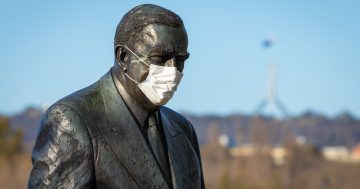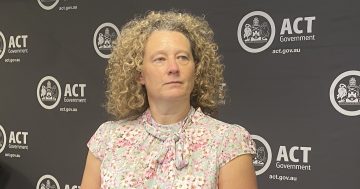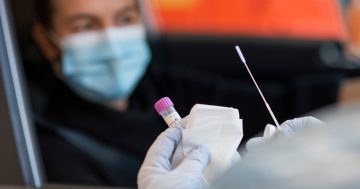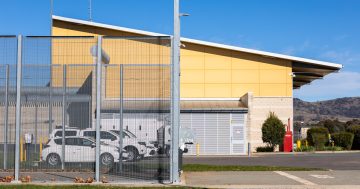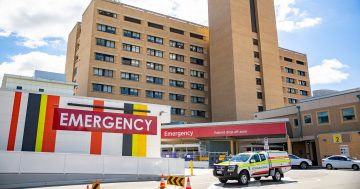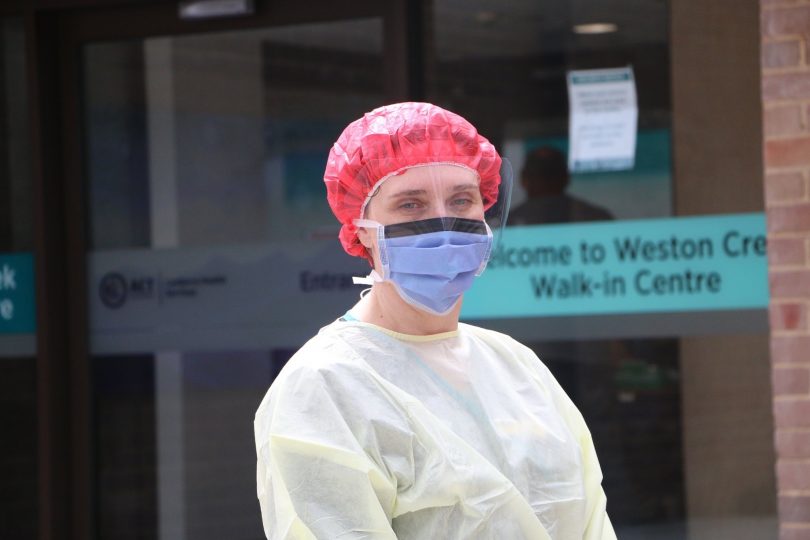
There is still no evidence of community transmission. Photo: Canberra Health Services.
Two new cases of COVID-19 have been recorded in the ACT in the past 24 hours, taking the Territory total to 99.
ACT Health says both the new confirmed cases are men, aged in their 60s and 70s. One is linked to overseas travel and the other is a close contact of a previously confirmed case.
Of the two cases still being investigated, one has been reclassified as “interstate acquired” following detailed contact tracing by the Communicable Disease Control section of ACT Health.
The other case is still under investigation, pending further test results, which may not be available until after Easter.
A total of 47 patients have recovered from COVID-19 and been released from self-isolation, almost half of all confirmed cases in the ACT.
Four COVID-19 patients remain on ventilation in Canberra hospitals, down from six yesterday, with the other cases isolating at home with ACT Health support.
The ACT has recorded two deaths.
Acting ACT Chief Health Officer Dr Vanessa Johnston has again reminded Canberrans that they should stay at home as much as possible, particularly at Easter.
“Complying with the rules on physical distancing and staying at home as much as possible are most certainly helping us flatten the curve,” Dr Johnston said.
“Please stay home this Easter long weekend. Do not travel to the coast or interstate.”
Dr Johnston said large gatherings with family and friends were banned, but family visits were still possible if only two people from outside a household group were involved at any time.
“This can be a difficult time for many people so I encourage Canberrans to find new ways to connect with their loved ones over this Easter period,” she said.
“It is still important that we comply with physical distancing rules as well as maintaining our excellent hand and respiratory hygiene practices. These will help lessen the impact on our health system when community transmission does occur here in Canberra.”
Dr Johnson also said while there is still no evidence of community transmission of the virus, it was an opportune time to implement more rigorous testing.
“While our testing numbers have dropped off over the past week, we have been doing more community-based testing for the past three days in places where businesses might have increased risk factors that are usually associated with COVID-19 to see if we are getting any undetected cases.
“From that program, we haven’t detected any new cases,” Dr Johnson said.
There have been 5679 negative tests for COVID-19 to date.
Canberra’s Chief Police Officer Ray Johnson said while officers had warned many people about social distancing laws, no fines had been issued.
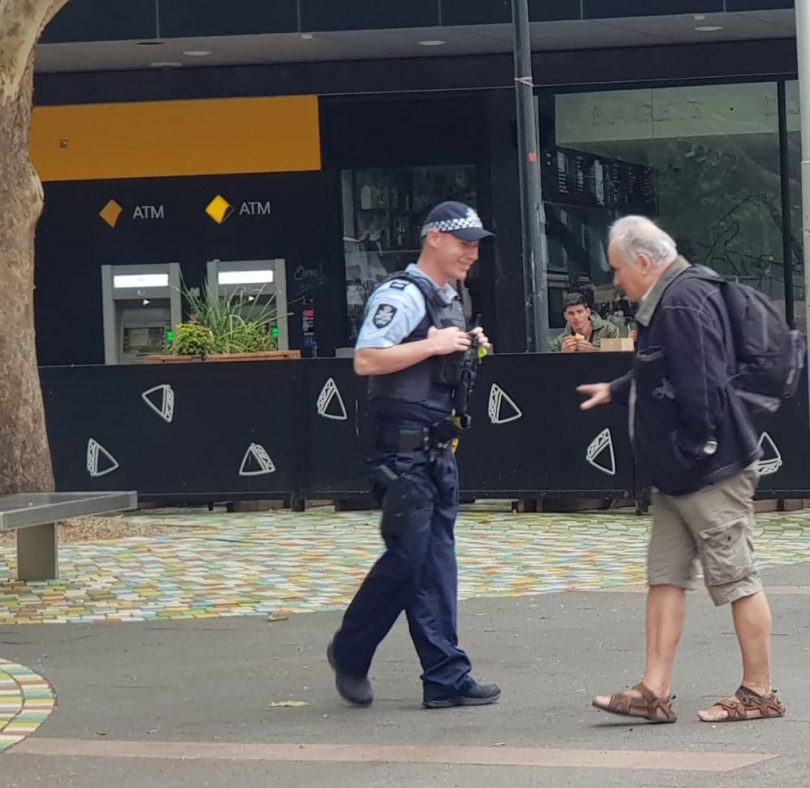
Police Officer having a conversation with a member of the public. Photo: Region Media
“The Canberra community has responded well and the vast majority of events the police have been called to, people are being compliant and they go about their business and change their behaviour.
Assistant commissioner Johnson warned motorists to consider their speed during the Easter period where double demerit points would be enforced. He also said police would be patrolling rural and camping areas in the ACT for people who might think it was okay to go camping during the break.
“Our rural patrols have observed people camping and I understand that while it may be tempting to get out of the house, I also remind you that it is not appropriate. If you’d like to pitch a tent in your backyard, I think that would be a good alternative,” he said.
Meanwhile, the ACT Minister for Health, Rachel Stephen-Smith, has extended the declaration of the COVID-19 public health emergency until 7 July 2020.
In line with measures in NSW, the Chief Health Officer will provide further advice at 30-day intervals for the duration of the extension regarding the status of the emergency, which can be revoked if the emergency declaration is no longer justified.
For up-to-date information, visit the ACT Government’s new COVID-19 website.
The ACT Government has also established a new helpline to assist Canberrans through the challenges of COVID-19 – call 02 6207 7244 between 8:00 am and 8:00 pm daily for support.
For details on how the ACT statistics compare with other jurisdictions across Australia, visit the Australian Government Department of Health. This information is updated daily.












